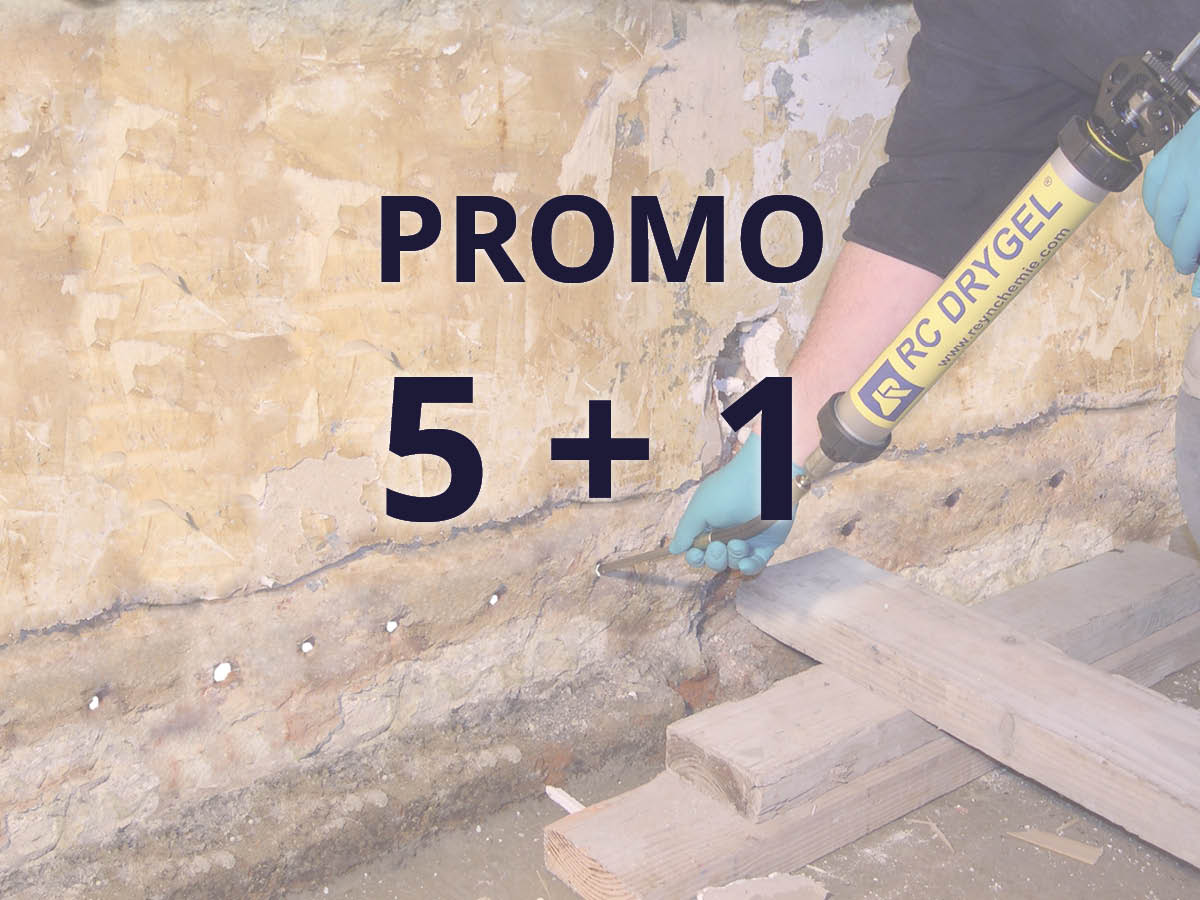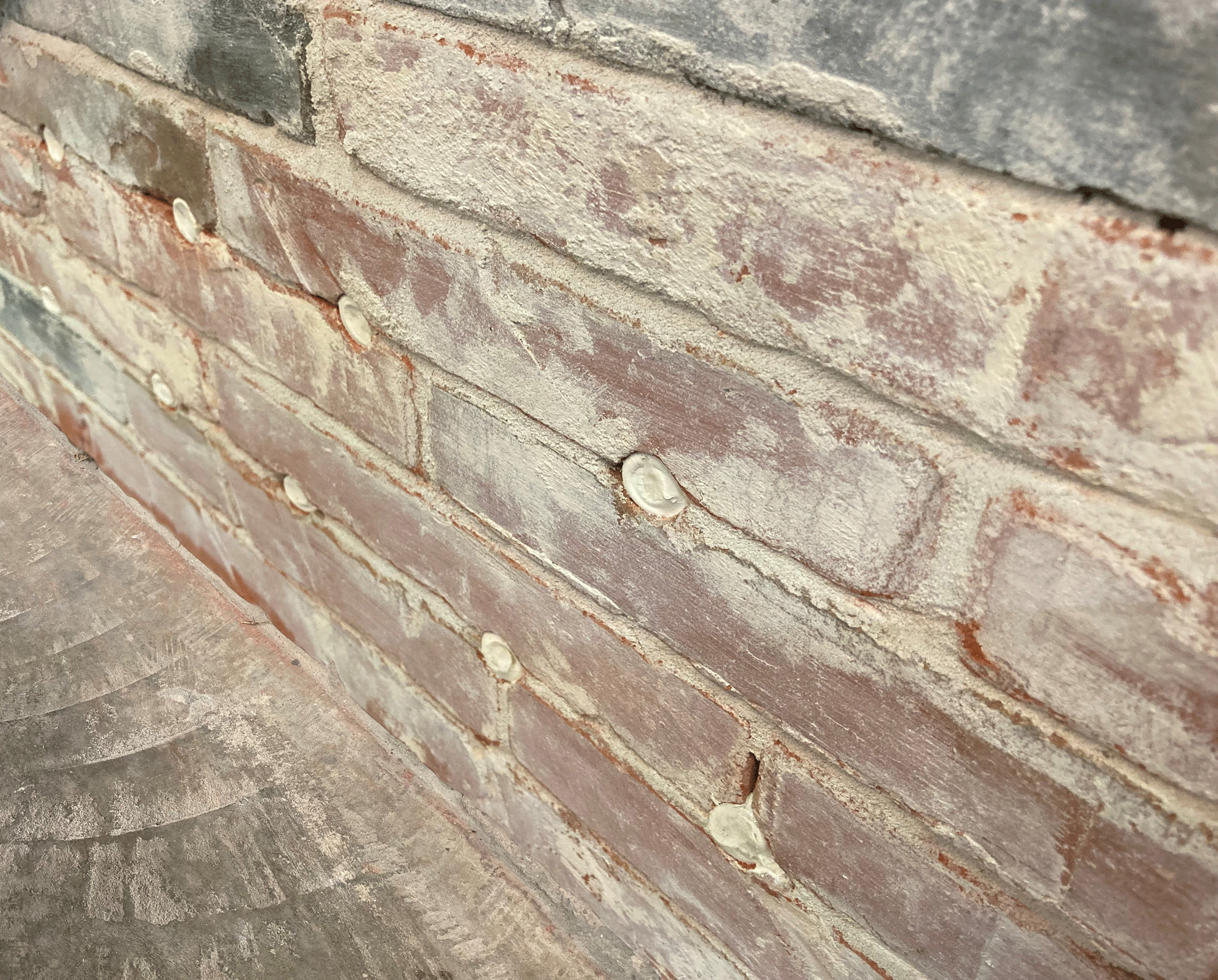In summary
Rising damp occurs when ground moisture rises through walls by capillary action, causing damage to plaster, paint and timber, and potential health issues. RC DRYGEL 80 provides a sustainable, eco-friendly solution: this water-based injection cream forms a permanent waterproof barrier in walls with cavities, cracks, or hollow blocks. For situations requiring a solvent-based system, RC 310 ECO offers a powerful alternative with an effectively unlimited service life. Accurate diagnosis, proper application, and post-treatment are essential for a long-lasting result.
What is rising damp?
Rising damp is the phenomenon whereby moisture from the ground travels upwards through porous building materials such as brickwork, natural stone, concrete and mortar.It mainly affects older buildings without a damp-proof course or with a damaged barrier, but it can also occur in newer constructions due to design or execution faults.
.jpeg)
Causes of rising damp
Rising damp is primarily caused by three structural and building-physics-related factors, which often reinforce one another.
1. Absence or deterioration of the cavity wall
Many older buildings do not feature cavity walls. These structures are built with solid masonry, allowing ground moisture and rainwater to penetrate directly into the wall.
When an existing cavity is partially or completely filled with mortar residues, it loses its insulating and moisture-resistant function, increasing the risk of penetrating and rising damp.
2. Presence of hygroscopic salts in the masonry
Another major cause is the presence of hygroscopic salts within the wall structure. These salts continuously attract moisture, even when the original moisture source is limited.
They originate from the soil, fertilisers, de-icing salts and historical building materials, causing walls to absorb moisture from groundwater, seepage water, rainwater and internal condensation.
3. Moisture ingress from basements or ground contact
Basements and other below-ground spaces without a correctly installed waterproofing system are in direct contact with the surrounding soil and are therefore highly susceptible to moisture ingress.
Water may penetrate as groundwater, seepage after heavy rainfall, or through condensation due to temperature differences. This moisture can then migrate upwards through the walls to upper floors.
Consequences of rising damp
Rising damp causes aesthetic, structural and health-related issues, including:
- Damp patches and salt efflorescence
- Musty odours in living spaces
- Peeling wallpaper and flaking paint
- Crumbling plaster and skirting boards
- Timber decay and mould growth
- Reduced indoor air quality and health risks
.jpeg)
Treating rising damp
Several methods are available to combat rising damp, such as:
- Installation of a mechanical damp-proof course
- Drainage systems for walls and floors
- Wall injection using a water-repellent product (most commonly applied and most effective)
Among these techniques, wall injection is generally the least invasive and most durable solution, provided it is carried out correctly.
.jpeg)
Wall injection as a sustainable solution
Wall injection is one of the most effective methods to permanently stop rising damp. The technique involves injecting a water-repellent product horizontally into the wall to form a permanent waterproof barrier.
Injection systems are available in solvent-based and water-based formulations, with water-based products supplied as liquids, gels or creams.
Effectiveness depends on:
- the type of active ingredient
- the formulation
- the wall structure
Reynchemie has 2 injection products against rising moisture: RC Drygel 80 and RC 310 ECO:

RC Drygel 80 is an environmentally friendly injection cream consisting of 80% active ingredient. Due to the transition phase from gel to a vapor phase, it spreads optimally in the injected wall so that a waterproof barrier is obtained in walls with voids, cracks and cracks, but also in hollow concrete blocks and materials such as quick-building bricks and cellular concrete. Our injection cream is solvent-free and poses no risk — even odour nuisance — to the user or occupant.
After removing the skirting boards, paneling and affected plasters on the wall, you can proceed with the injection. To do this, drill horizontal holes with a diameter of 12 or 14 mm and a distance of 10 to 12 cm at an angle of 10° to 15°. Insert the syringe completely to the end of the borehole and retreat a few cm. Squeeze the gun handle gently and, as you gradually pull the gun back, completely fill the borehole with the RC Drygel 80 to 1 cm from the wall surface. The boreholes should be closed afterwards with RC 221.
After the injection with RC Drygel 80, it is recommended to brush off the salt efflorescences after dehydration and to treat them with salt blockers RC Sulfastop ZB whether RC SALSPER. To ensure an extremely efficient result, the salt buffering and slightly water-repellent plaster is RC Sanisel applied to the wall. Finishing can be done with finishing plaster RC Calcoliss 300.
RC 310 ECO is a powerful solvent-based injection liquid offering an effectively unlimited service life of the treatment. It provides a definitive and reliable result and is suitable for both thin and thick walls.
Reynchemie's range and expertise
Combating moisture is not an easy job. There are many things to take into account: choosing the right products and materials, respecting the correct drying time, applying the correct techniques... Also, keep in mind that every situation is different and requires a specific approach. Carrying out moisture control yourself is therefore not recommended.
Are you sure of a correct diagnosis and approach? Be sure to contact one of our technical advisors via Contact. Our technical advisors can certainly also recommend a certified company to seal your basement.
Be sure to check out our full range of rising moisture and consult our technical brochure about rising humidity.

.avif)



